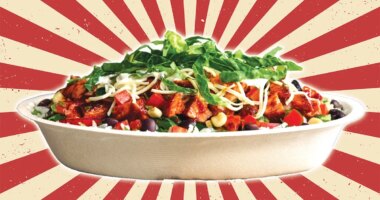We’re deep-diving into a topic that might make you feel a little uncomfortable—literally. Constipation happens when you have infrequent bowel movements or difficulty passing stool. Typically, a person with constipation may experience fewer than three bowel movements per week, have trouble passing stool, or feel a sense of incomplete evacuation. Constipation can be accompanied by symptoms like bloating, stomach pain or discomfort, and a general feeling of being “backed up.” It can be a chronic condition requiring medical attention, or a temporary issue caused by certain factors, such as consuming foods that cause constipation.
Barring any medical conditions, here are three common reasons you might be dealing with constipation:
- Dehydration: Drinking enough fluid is important to help fiber work more efficiently in our digestive tract, and not drinking enough fluid can cause constipation, says Wan Na Chun, MPH, RD, CPT.
- Lack of exercise: Lack of physical activity or prolonged periods of sitting can slow down the digestive system and contribute to constipation. On the other hand, regular exercise helps stimulate bowel movements.
- Increased fiber intake: Upping your intake of fiber by eating more fruits, vegetables, and whole grains is great, but be sure to increase slowly and drink plenty of fluids to avoid constipation, notes Jennifer Wilfong, MA, RD, CSP, LD, FAND.
- Consuming foods that cause constipation: Many foods can cause constipation due to being high in fat, low in fiber, or those that have a dehydrating effect.
A diet high in fiber and low in fluids isn’t the only reason you may be backed up. It turns out that specific foods may be the culprit behind your sluggish digestion. We’ve teamed up with dietitian experts to spill the beans on 12 foods that cause constipation. Read on to find out exactly which foods might be slowing your ability to go, and for more, don’t miss 16 Foods To Help You Poop Immediately.
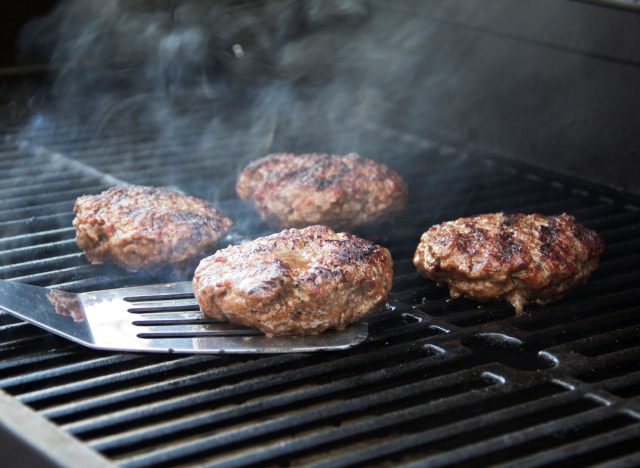

Red meat is often high in total fat, contains no fiber, and might be seasoned with salt. “A diet high in red meat is associated with constipation. Animal foods like red meat lack fiber. Red meat is also high in fat, which helps you feel full leaving less room for fiber-rich fruits, vegetables, and whole grains,” says registered dietitian Lindsay Ducharme RD, CSR, LDN.
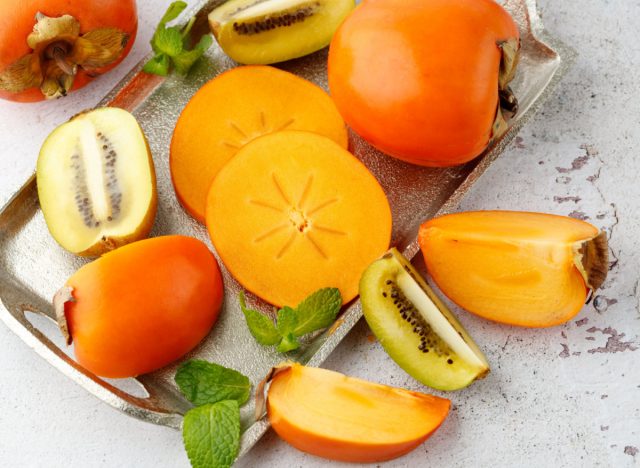

Persimmons may be delicious and nutritious fruits, but they also happen to be foods that cause constipation. Persimmons, especially the astringent variety, can slow down digestion and promote constipation due to their tannin content. Limit your intake of astringent persimmons if you experience constipation, explains registered dietitian nutritionist Vandana Sheth, RDN, CDCES, FAND.
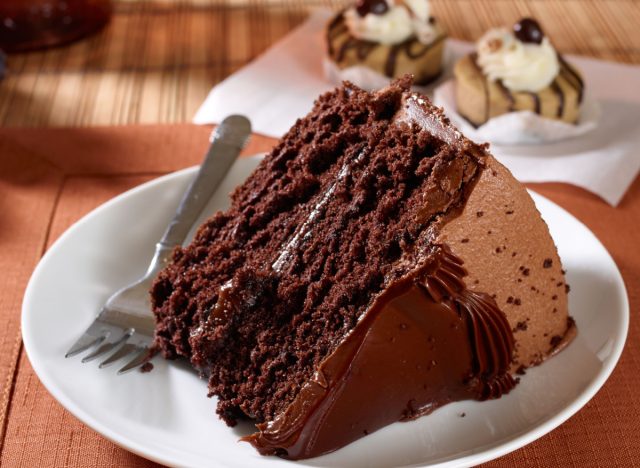

The combination of high-fat and low-fiber ingredients in most cakes creates a perfect storm for slowing down digestion and contributing to constipation. Fat is one macronutrient that takes a long time to digest, and cake contains a lot of it in addition to high-sugar, low-fiber ingredients that can be dehydrating. The one-two punch of slowed digestion with dehydration is a recipe for constipation if you’re already prone to it.
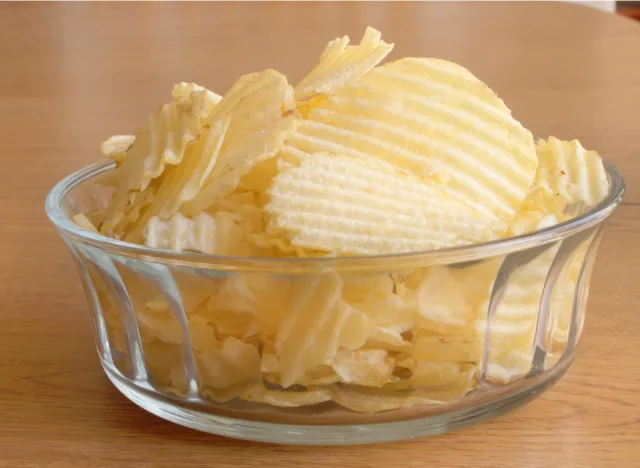

The salty crunch might be delicious, but it’s likely not helping your digestion if you struggle with constipation. Salt is quite dehydrating, pulling water away from the gastrointestinal tract and further slowing down the movement of your digestive process. If you do choose salty foods, be sure to drink plenty of water and balance them with lower-sodium foods throughout your day.
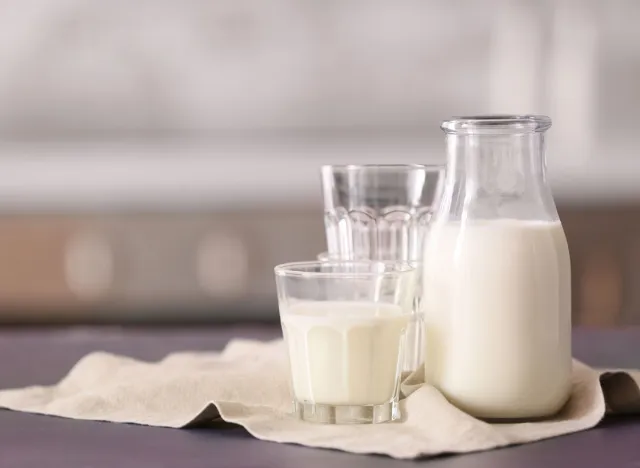

“Dairy can contribute to constipation, especially for individuals with a dairy intolerance. While data in adults is limited, growing evidence suggests a correlation between lactose intolerance and constipation in children. In fact, constipation affects approximately 30% of people who experience lactose intolerance and functional constipation, notes Dani Lebovitz, MS, RDN, food and nutrition education expert based in Franklin, TN, and founder of Kid Food Explorers.
Exploring dietary alternatives, such as opting for dairy-free options like flax, oat, almond, or coconut milk, may prove beneficial in managing constipation symptoms and promoting regular bowel movements maintaining digestive comfort, Lebovitz adds.
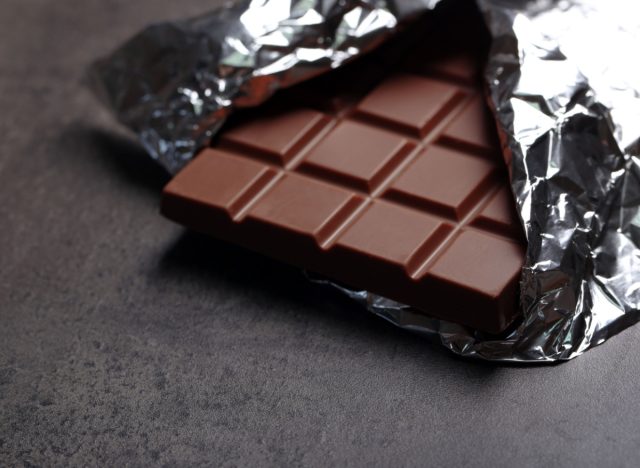

This one is going to be upsetting but chocolate can be a culprit for constipation. In fact in one study that took place in Germany, chocolate was mentioned the most as a potential cause of constipation. This is due to the high fat content in chocolate which can slow down digestion, slowing the movement of foods through our gastrointestinal tract, shares Brittany DeLaurentis, MPH, RD, CSO, LD.
READ RELATED: 6 Belly Fat Exercises You Should Start Doing in Your 30s
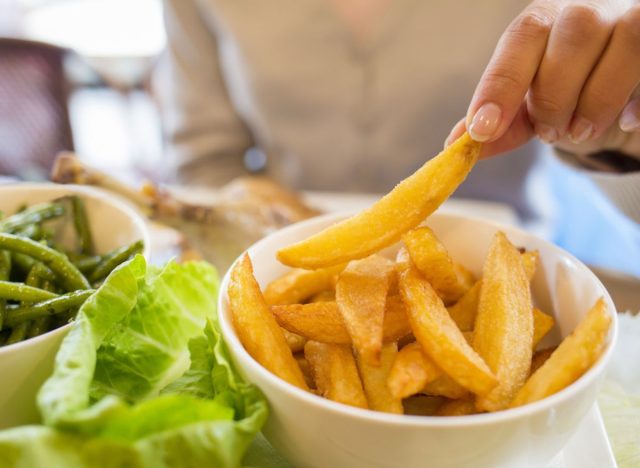

Consuming large amounts of fried and fast foods can contribute to constipation due to their tendency to be low in fiber while containing high amounts of fat and salt. Replacing nutrient-dense meals and snacks with these less nutritious options can result in a decrease in overall fiber intake, Julie Balsamo, MS, RDN advises.


Increasing fiber for constipation has one caveat: adding too much fiber in too quickly could actually contribute to constipation as your body works to break down all of these new foods. Although counterintuitive, foods with high amounts of added fiber can lead to tummy troubles including constipation, Sarah Anzlovar, MS, RDN, LDN, of Intuitive Eating Dietitian for Moms tells us.
While fiber is important for keeping you regular, too much of it at once can actually do the opposite, especially if you’re not drinking enough water to support the bowels moving through the intestines. If something that doesn’t naturally have much fiber in it such as cookies, brownies, granola or energy bars, cereals, crackers, protein powders, etc. has a lot of fiber, that’s a signal that it’s added and could be problematic. You can also look for ingredients like inulin, chicory root, or psyllium. Most people can tolerate these in small amounts, but in excess can be problematic, Anzlovar notes.
Chrissy Barth, MS, RDN, RYT comments on this double-edged sword with fiber intake: “High-fiber foods like fruits, veggies, whole grains, nuts, seeds, beans, lentils, and foods that have been fortified with fiber are good for your health however, adding too much too quickly can increase the risk for intestinal gas, abdominal bloating, cramping, and constipation. Increase the fiber in your diet slowly over a period of a few weeks to allow your digestive system to adjust.”


Alcohol is one drink that can make you constipated. Alcohol is dehydrating and your gut needs the water for easy going. You may also eat foods that are higher in fat and sodium when you drink which could increase the constipating effect, shares Amanda Sauceda, MS, RD.
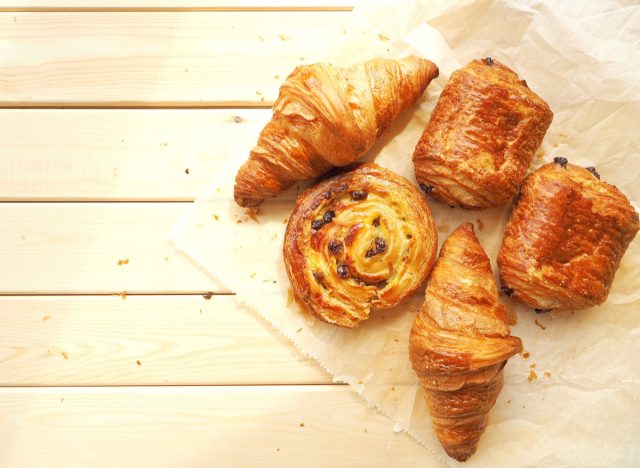

Sweets and processed foods are among the foods that can cause constipation. These foods are low in fiber and fluids and high in fat and processed sugar, which can slow down digestion and delay gut motility. Examples of these foods include pastries, cookies, frozen meals, potato chips, pretzels, and other processed snack foods, Chun explains.
Instead, we recommend eating more high-fiber foods such as vegetables, fruits, and whole grains and avoid or limit the intake of sweets and processed foods to prevent constipation, she adds.
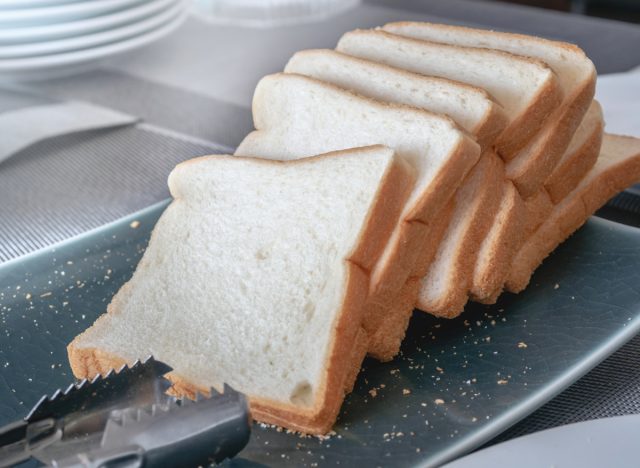

Without much fiber, white bread and similar product made with refined flour can contribute to constipation. These products might also be dehydrating due to the added sodium and sugar content. White bread-dough products ranging from cookies, pastries, bread, and donuts can all be culprits here.
When you do indulge, choose to drink plenty of water, and balance your choices throughout the day with higher fiber options.






